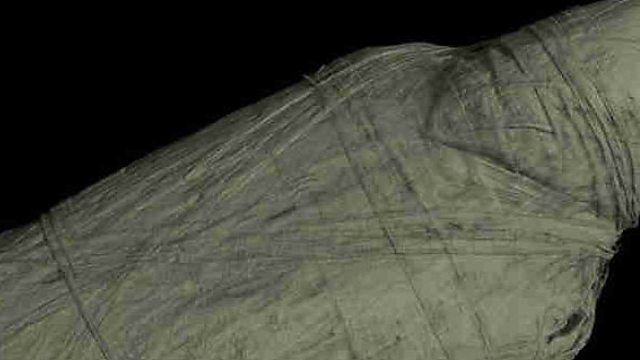
Living Independently with Dementia
Helping people with dementia to live independently for longer. Also making matter from light; Egyptian mummies and physicist Alf Adams.
Longitude Challenge - Dementia
How can we help people with dementia to live independently for longer? Dr Kevin Fong is the champion for this Longitude Challenge, arguing that we all use technology to support our lifestyles, but that people with dementia need extra technology. Marnie Chesterton visits Designability, a Bath-based design charity that works with people with dementia to develop new technologies. Their Day Clock shows that a simple design can produce radical results.
Matter from Light
In 12 months' time, researchers say they will be able to make matter from light. Three physicists were sitting in a tiny office at Imperial College London and while drinking coffee they found what they call a fairly simple way to prove a theory first suggested by scientists 80 years ago: to convert photons - ie particles of light - into electrons (particles of matter) and positrons (antimatter). Adam discusses the work with theoretical physicist Professor Steven Rose from Imperial College London and science writer Philip Ball.
Insign for Deaf People
There have been large strides made in the development of technology to assist those who are deaf. One scheme, Insign, is technology that translates sign language, allowing deaf people to communicate with their elected representatives. Democracy has suffered because key information is available in lots of languages, but not sign language. Jemina Napier explains how Insign opens up access to the political process for deaf people.
Indigenous People and Climate Change
With a global desire to reduce deforestation, are the needs and rights of Panama's indigenous people being ignored? Reporter Ruxandra Guidi finds out how the Kuna people are leading the way for other indigenous groups.
Egyptian Mummies
The British Museum has carried out scans on eight Egyptian mummies, revealing unprecedented details about these people. It is enabling scientists for the first time to tell their age of the mummies, what they ate, the diseases they suffered from, and how they died.
Alf Adams
Alf Adams FRS, physicist at the University of Surrey, had an idea on a beach in the mid-1980s that made the modern internet, CD and DVD players, and even bar-code readers possible. You probably have half a dozen 'strained-layer quantum well lasers' in your home.
Illegible Indian Prescriptions
A doctor's prescription in India can quite often literally mean different things to different people. It is not uncommon for prescriptions to be written in an illegible hand, and not contain adequate information on dosage and strength of medicines. This can sometimes lead to the wrong drugs being dispensed to patients. The situation was so bad that the federal government and the Medical Council of India had to step in; and finally they have come out with one simple remedy: As a first step, all prescriptions will have to be written in capital letters. ����ý Urdu's Suhail Haleem has been finding out more.
Last on
Chapters
-
Longitude challenge – Dementia
How can we help people with dementia to live independently for longer
Duration: 10:07
Matter from Light
In 12 months' time, researchers say they will be able to make matter from light.
Duration: 07:42
Sign language
How Insign opens up access to the political process for deaf people.
Duration: 05:09
Kuna
Deforestation, are the needs and rights of Panama's indigenous people being ignored?
Duration: 07:24
Egyptian mummies
Scans carried out on Egyptian mummies have shown unprecedented details.
Duration: 07:58
Physicist Alf Adams
Alf Adams had an idea that made the modern internet, CD and DVD players possible.
Duration: 02:33
Prescriptions
A doctor's illegible handwriting can lead to the wrong drugs being dispensed to patients.
Duration: 08:35
Broadcast
- Sun 25 May 2014 13:06GMT����ý World Service Online
Podcast
-
![]()
Unexpected Elements
The news you know, the science you don't

